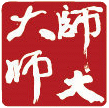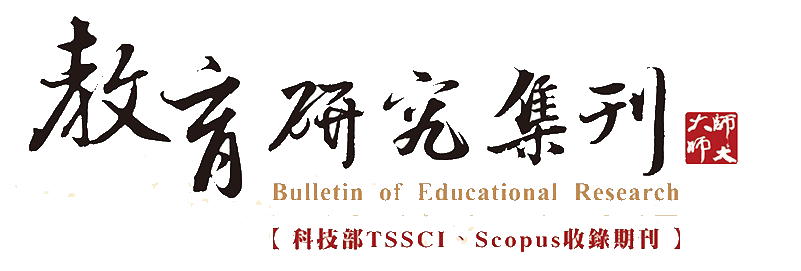| 篇名 |
評Dewey釋三類不當課程觀念
更多文章
|
|---|---|
| 並列篇名 | Comments on Dewey’s Interpretation of Three Improper Curriculum Ideas |
| 作者 | 單文經、羅逸平、蔡曉楓 |
| 中文摘要 | 研究目的 鑑於正面表述課程理念,以直指應興應革的事項固然重要,然藉由負面陳述導正課程觀念,甚至逕行揭示負面事項,以匡正不當課程觀念,亦具重要意義,因此本研究藉多方文獻探討後確認:Dewey所闡釋之不能見容於一般事理的不當課程觀念,可歸結為外在化的課程、反教育的教學以及不用心的學習三類。本研究目的即於認定這三類不當課程觀念的前提下,針對Dewey就其等所做有關闡釋進行學術評論。另外,本研究並於討論Dewey的闡釋與當前課程實施之間的關聯後,試著推斷Dewey會怎麼看當今臺灣推動的課程改革。 主要理論或概念架構 有鑑於Dewey一向主張自課程的上位概念,亦即從教育的立場出發,採取整體與寬廣的視角看待課程,因而本研究在針對其課程觀念進行概念分析時,即不限於一般內容為考量的課程之本身,而能進一步將課程實施的另兩項要素,亦即教學與學習納入。 研究設計/方法/對象 以Dewey論著及其他文獻為據,本研究採用Dewey未言明但常用的概念分析法,針對三類不當課程觀念做合理、適切與確當的說明和評析;進行概念分析時,並依詮釋循環原理,確實掌握Dewey所做闡釋的意義與真諦。 研究發現或結論 就外在化的課程而言,先後針對其目標與組織進行原因的解析與事實的舉例,並據此確認這大多是因為包括教師在內的成人,在忽略學生的情況下,由外而內所做安排,因而成為Dewey所闡釋的第一項不當課程觀念。 就反教育的教學而言,則於闡明Dewey合教育的教學應具有經驗為本、積極參與、學習興趣、反省思考、意義理解等五要件的內涵後,指出不合五要件的灌輸及動物訓練等不當課程觀念依然存在。 就Dewey所闡釋的第三項不當課程觀念,亦即不用心的學習而言,先確認用心的學習之要在由誠心入手,次以虛心廣納所學,再以專心持續為之,終以責任心整合之;另並指出有些學生本末倒置,只求迎合教師,卻不認真學習,以致被動接受與機械記憶等學習方式,仍不為鮮見。 理論或實務創見/貢獻/建議 1. 獨特性:至少在中文世界未見與本文選題相同者,一也;在配合Dewey著作電子資料庫的搜尋,因而確保所引用Dewey文字皆真實無誤的前提下,以Dewey未明言的概念分析為方法,說明與評析三類不當課程觀念,二也;配合新近研究文獻,推斷Dewey審慎樂觀以待臺灣推動的課程改革,三也。 2. 整合性:以廣義課程概念為本,將Dewey著作中論及課程目標與組織,教學、教導、訓練與灌輸,經驗為本、積極參與、學習興趣、反省思考、意義理解,誠心、虛心、專心、責任心,被動接受、機械記憶等有關概念,加以分析與討論後,並在綜合整理之同時,以負面提示的角度撰成包含課程、教學與學習三類不當課程觀念在內的論文。 |
| 英文摘要 | Purpose While it is important to articulate curriculum ideas positively to highlight the issues that should be addressed, it is equally critical to correct curriculum ideas through negative statements, or even to reveal problematic issues to rectify improper views. This article draws on a wide range of literature to confirm that Dewey’s interpretations of improper curriculum ideas which cannot be accommodated in general can be categorized as externalized curricula, mis-educative teaching, and mindless learning. The purpose of this article is to critique Dewey’s interpretations of these three types of improper curricula. In addition, after discussing the relationship between Dewey’s interpretations and current curriculum implementation, this article tries to extrapolate how Dewey views curriculum reform in Taiwan. Main Theories or Conceptual Frameworks Dewey consistently advocated for a higher-order conceptualization of the curriculum, approaching it from an educational standpoint with a holistic and broad perspective. This article, with its conceptual analysis of Dewey’s curriculum theory, does not confine itself solely to the content-based notion of the curriculum. Instead, it extends the scope to incorporate two additional essential elements of curriculum implementation: teaching and learning. Research Design/Methods/Participants Based on Dewey’s writings and other related studies, we adopt Dewey’s unexpressed but commonly used conceptual analysis to provide a reasonable, appropriate, and accurate analysis of three types of improper curriculum ideas. The conceptual analysis is carried out according to the principle of the hermeneutic cycle, so as to accurately grasp the significance and meaning of Dewey’s interpretations. Research Findings or Conclusions In the case of an externalized curriculum, the reasons and facts for the curriculum’s goals and organization are analyzed. It is confirmed that most of them are organized from the outside by adults, including teachers, without regard for students, thus representing the first improper curriculum ideas commented on by Dewey. In terms of mis-educative teaching, it is clarified that Dewey’s ideas about educative teaching should emphasize experience-based, active participation, interests in learning, reflective thinking, and understanding of meaning. It is pointed out that mis-educative curriculum ideas which do not conform to the five elements still exist. With regard to the third improper curriculum idea commented on by Dewey mindless learning– it is firstly recognized that mindful learning starts from sincerity, followed by an open mind to learn, then continuation with dedication, and finally integration with responsibility. Some students put the cart before the horse, only seeking to satisfy teachers without serious learning, resulting in passive reception and mechanical memory, which is not uncommon. Theoretical or Practical Insights/Contributions/Recommendations 1. The first contribution of this study is its unique perspective. First, there is not yet one previous study, at least in the Chinese-speaking academic world, which shares the same topic as this paper. Second, the study employs conceptual analysis of ideas not explicitly stated by Dewey to explain and critique the three types of improper curriculum concepts, ensuring the authenticity of all cited Dewey texts through verification against electronic databases of his works. Third, the study incorporates recent research literature to infer Dewey’s likely cautious optimism towards Taiwan’s curriculum reform. 2. The other contribution of this study is its integrative methodology. Based on the concept of curriculum in a broad sense, Dewey’s writings on curriculum goals and organization, teaching, instruction, training and indoctrination, experience based, active participation, interest in learning, reflective thinking, understanding of meaning, sincerity, open-mindedness, dedication, responsibility, passive reception, and mechanical memory were analyzed and discussed. The synthesized analysis is presented from the perspective of three types of improper ideas, namely curriculum, teaching, and learning. |
| 起訖頁 | 087-133 |
| 關鍵詞 | Dewey、不用心的學習、反教育的教學、外在化的課程、課程的概念分析、Dewey、mindless learning、mis-educative teaching、externalized curriculum、conceptual analysis of the curriculum |
| 刊名 | 教育研究集刊 |
| 期數 | 202503 (71:1期) |
| 出版單位 | 國立臺灣師範大學教育學系 |
| DOI | 10.6910/BER.202503_71(1).0003 複製DOI |
| 該期刊-上一篇 | 小學數學教育學者對雙語教育課程政策形塑所涉入爭議及數學雙語教學之觀點 |
| 該期刊-下一篇 | 評介《屈服:為什麼進步主義者輸掉了教育最大的戰役》 |








